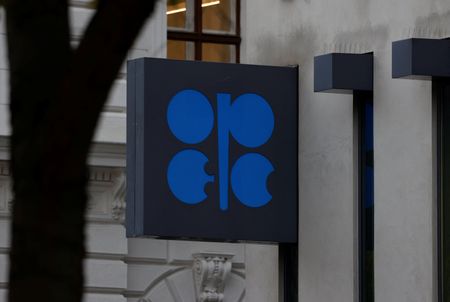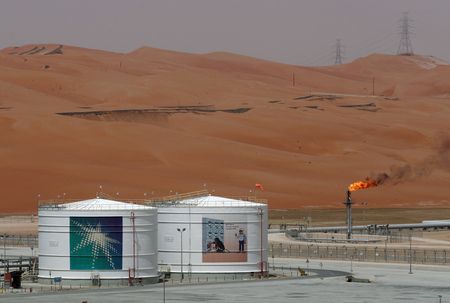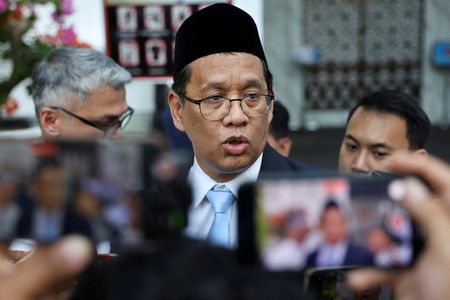By Sudarshan Varadhan and Ruma Paul
SINGAPORE/DHAKA (Reuters) -Bangladesh is boosting power imports from India and output from fuel oil-fired power plants in a scramble to meet rising electricity demand as it grapples with constraints on gas supply and coal plant maintenance, industry officials and analysts say.
Power imports, mainly from an Adani Power-run coal-fired plant in eastern India, rose 70% in the seven months through July and helped satisfy most of the rising demand, government data showed.
Natural gas accounted for about two-thirds of Bangladesh’s power demand in the decade that ended in 2020, but the country has been boosting power imports and local coal-fired generation due to gas infrastructure challenges and to cut costs.
“It’s about cost effectiveness, and gas is required for the fertiliser industry, whereas cheap electricity can be received from other sources, including fuel oil,” said Adeeba Aziz Khan, director of Bangladesh’s Summit Power.
Her firm runs a dozen power plants using gas and fuel oil.
“There is a shortage of gas for electricity generation and evacuation problems,” Khan said on the sidelines of the APPEC conference, adding that it was difficult to see a resurgence in gas-fired generation in the “foreseeable future”.
A senior official of the Bangladesh Power Development Board (BPDB) said many gas-fired plants were not running at capacity because of pressure-related technical problems, while coal-fired power output was lower due to maintenance outages.
“The government didn’t have many choices. To avoid blackouts, they turned to imports, and Adani’s power was available in large volume,” said the official, who sought anonymity as he was not authorised to speak on the matter.
BPDB did not respond to requests seeking comment.
The share of imports during the first seven months of this year jumped to 15.4% from 9.5% and that of fuel oil-fired power rose to 12.6% from 11.9% annually, government data showed.
“When power demand started increasing since March, they had to increase imports and fuel oil-based power generation,” said Shafiqul Alam, a Bangladesh-based analyst at the Institute for Energy Economics and Financial Analysis.
The share of natural gas in power generation slipped to 43.9% from 46.8%, while the share of domestic coal-fired output fell to 26.2% from 30.1%.
The South Asian country increased imports of liquefied natural gas (LNG) by 24% in the seven months through July, data from analytics firm Kpler showed. Still, gas-fired power generation fell 1.2%, according to government data.
(Reporting by Sudarshan Varadhan in Singapore and Ruma Paul in Bangladesh; Additional reporting by Lucas Liew; Editing by Clarence Fernandez)







